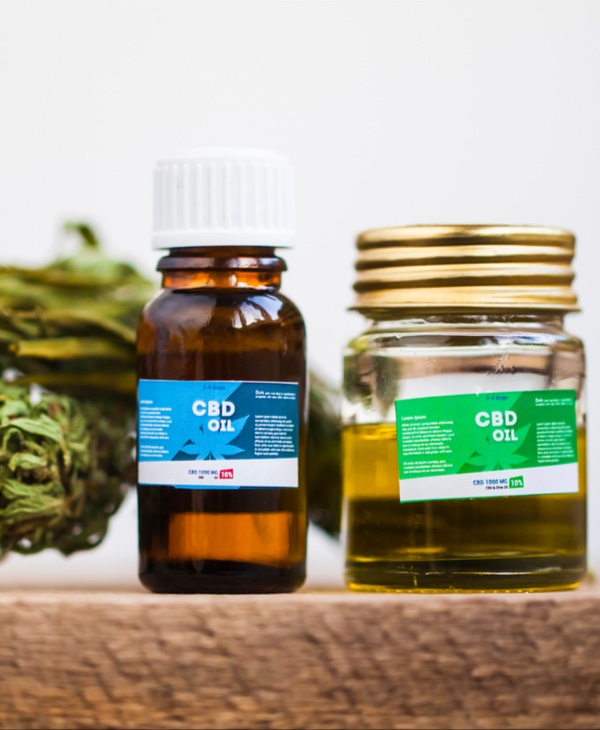- Over the last few years, CBD has risen to stardom thanks to its many therapeutic applications.
- Its effectiveness again a type of refractory epilepsy known as Dravet’s syndrome put it on the map, prompting the medical and scientific community to thoroughly research its properties.
- But despite the effectiveness of CBD for treating certain conditions, attention must be paid to interactions with other medicines, which could lose effectiveness and lead to more serious side effects.

The market today has been flooded with CBD oils and other CBD-based medicinal preparations. Because it does not lead to addiction and causes only mild side effects, this non-psychoactive, highly therapeutic component of cannabis is well tolerated by the body, and is becoming an increasingly frequent treatment option for various conditions. As a result, the scientific community is now focusing on the possible interactions of CBD with other medicines.
CBD interactions with cytochrome P450
Cytochrome P450 are liver enzymes of a superfamily that metabolises about 60% of the medicines we take. In high doses, CBD inhibits the activity of these enzymes, temporarily deactivating them so to speak, and thus altering the metabolism of other substances, including medicines and THC. It is therefore important to remember that, when taking CBD in combination with other medicines, these could lose effectiveness and lead to more serious side effects.
The inhibiting action of CBD on liver enzymes is dose-related, with virtually no effect on liver function and its capacity to metabolise other substances if doses are low. As yet, no threshold has been set for safe doses.
Effects of some medicines on CBD
CBD is metabolised by CYP3A4 and CYP2C19 enzymes, which belong to the cytochrome P450 family. Coadministration of CBD with medicines that inhibit these enzymes could therefore increase plasma concentration (amount of active substance per weight or volume) of CBD, increasing its effect as well as the risk of suffering side effects. The list of CYP3A4 and CYP2C19 enzyme inhibitors is long and varied, including different antifungals, antibiotics, antidepressant and anxiolytics, among others.

Conversely, medicines that induce CYP3A4 and CYP2C19, like certain barbiturates and anticonvulsants, can reduce the effectiveness of cannabidiol, in which case a dose increase may be necessary.
Effects of CBD on other medicines
- Diazepam:Cytochrome P450 is responsible for metabolising some anxiolytics including diazepam, meaning than, when taken in combination with CBD, it may be necessary to reduce the dose in order to avoid side effects.
- Clobazam:An eight-week study with thirteen-year-old epilepsy suffers that were treated with clobazam and CBD found that interactions of CBD with CYP3A4 and CYP2C19 isozymes increases the bioavailability of clobazam. This implies that a lower dose of the drug would produce the same effect as the standard dose but with fewer side effects.
- Anticoagulants and anti-inflammatories:Some studies suggest that CBD inhibits the liver protein CYP2C9. Belonging to the cytochrome P450 family, CYP2C9 plays a major part in metabolising anticoagulants, meaning that CBD could affect the metabolism of anticoagulants like warfarin and anti-inflammatories like diclofenac, widely used for treating rheumatoid arthritis.
- Barbiturates:According to some clinical studies, CBD increases the bioavailability of hexobarbital, a sedative, hypnotic barbiturate, and facilitates the elimination of the substance.
- Anti-cancer medicines:CBD is often used to reduce nausea and vomiting caused by chemotherapy. According to some studies, though, this can lead to an increased bioavailability of the anti-cancer treatment, which, can in turn cause an overdose and/or lead to increased side effects. Considering the aggressive nature of these treatments, redosing may be necessary when coadministered with CBD.
- Valproate:Some studies suggest that coadministration of CBD and the antiepileptic drug Valproate can result in liver transaminase elevations, which could cause liver damage on the long run. It is therefore important to adjust the dose as necessary when both substances are taken together.
- Central nervous system depressants and alcohol:Including sedatives, tranquilisers and hypnotic medicines, CNS depressants can lead to excess sedation and sleepiness when taken together with CBD, a similar effect to that of CBD-alcohol interactions.
Is it possible to overdose on CBD?
To date, no deaths by cannabinoid overdose have been recorded. Quite the opposite, CBD has been found to be well tolerated by the body, even at doses as high as 1,500 mg/day. That said, further studies on the molecule are still necessary, and treatments should always be medically supervised.
Epidiolex (Cannabidiol): A New Hope for Patients With Dravet or Lennox-Gastaut Syndromes Jeffrey W. Chen, MBA, Laura M. Borgelt, PharmD, FCCP, BCPS, Allison B. Blackmer, PharmD, BCPS, BCPPS, FCCP
Geffrey AL, Pollack SF, Bruno PL, et al. Drug–drug interaction between clobazam and cannabidiol in children with refractory epilepsy. Epilepsia. 2015;56:1246–1251 2.
Ujváry I, Hanuš L. Human metabolites of cannabidiol: a review on their formation, biological activity, and relevance in therapy. Cannabis Cannabinoid Res. 2016;1:90–101
Brzozowska N, Li KM, Wang XS, et al. ABC transporters P-gp and Bcrp do not limit the brain uptake of the novel antipsychotic and anticonvulsant drug cannabidiol in mice. Peer J. 2016;4:e208–
Jones G, Pertwee RG. A metabolic interaction in vivo between cannabidiol and 1 –tetrahydrocannabinol. Br J Pharmacol 1972; 45(2): 375-7.
Holland ML, Allen JD, Arnold JC. Interaction of plant cannabinoids with the multidrug transporter ABCC1 (MRP1). Eur J Pharmacol 2008; 591(1-3): 128-31.
Cannabis Cannabinoid Res. 2017; 2(1): 139–154. Published online 2017 Jun 1. doi: 10.1089/can.2016.0034



Comments from our readers
There are no comments yet. Would you like to be the first?
Leave a comment!Did you like this post?
Your opinion about our seeds is very important to us and can help other users a lot (your email address won't be made public).